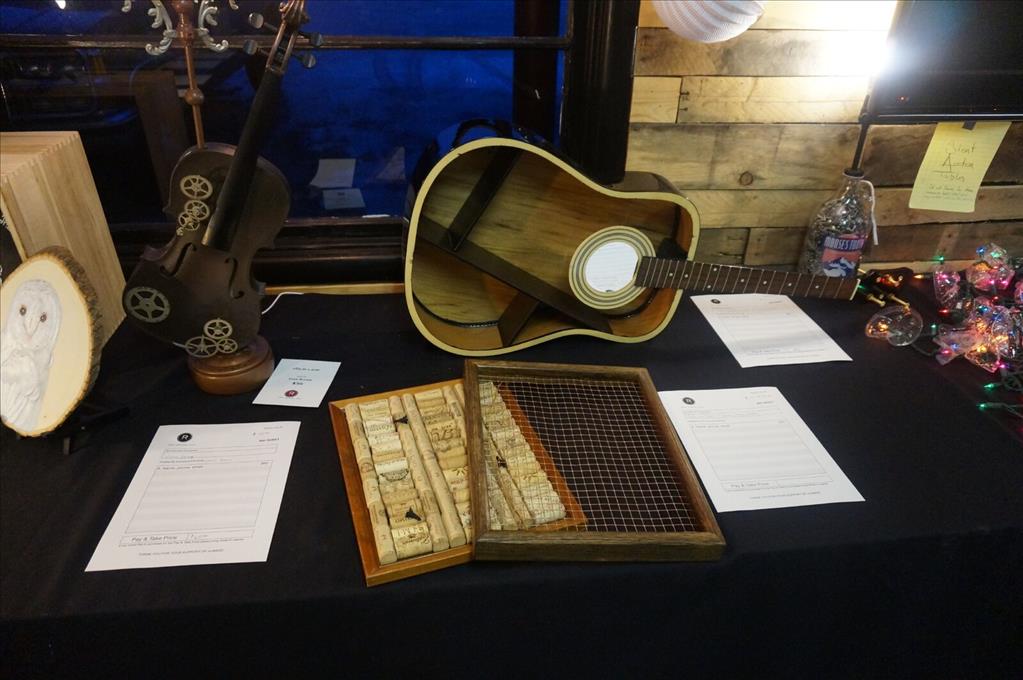Promoting 100+ diverse voices in Anchorage
by joey |

Heather MacAlpine, B.A. Justice '12, directs Anchorage's Office of Equal Opportunity, where she works towards the mayor's goal of supporting diversity and adding more voices to City Hall. (Photo by Phil Hall / University of Alaska Anchorage)
First, some facts.
Anchorage boasts the nation's three most diverse high schools. Out of nearly 67,000 elementary schools, the country's 19 most diverse are all in Anchorage. Ready for one more? Of the nation's nearly 75,000 census tracts, the most diverse is Mountain View, just two miles from UAA's campus.
Diversity is one of Anchorage's most celebrated statistics. But how, in a city this diverse, do you ensure everyone gets a seat at the table? That's the question Heather MacAlpine '12, director of the city's Office of Equal Opportunity, seeks to answer every day.
In her role, Heather connects the city's myriad communities to public construction contracts and works to give everyone a voice at City Hall. That's easier said than done, though (and easier said than translated, since city residents speak more than 100 languages.)
Thankfully, she said, the administration of Mayor Ethan Berkowitz is "highly supportive of diversity," and focused on reaching the city's underserved pockets.
Recognizing and celebrating diversity is noble, but not easy. "It's hard to wrap your mind around 100 different languages," Heather noted. "It's super-challenging, but it's super-exciting at the same time."
Anvik to Anchorage
Heather grew up in Anvik, where her mother worked as a schoolteacher for the Iditarod Area School District. The family later moved to the district offices in McGrath, where Heather graduated from high school at age 16.
She started at APU with academic scholarships, but eventually moved to Las Vegas, where she earned a paralegal degree. She returned to Alaska with her young family for a job with an attorney; that experience, she says, "took me back to UAA." In turn, UAA took her to City Hall.
As a student, Dr. Sharon Chamard offered Heather a research opportunity on her project analyzing residents' attitudes and impressions of the Mat-Su Borough. The final document, including appendices, clocked in at more than 500 pages, and Heather's name was right there on the cover as co-author.
"I really appreciate [the justice department]," she said. "They gave me a good background in a sense of just feeling supported." Personal initiative was key to start the conversation but, once she introduced herself and her interests, she found professors were eager to help her succeed. "You feel well-rounded and more confident coming from [UAA]," she said. "I loved it."
Leveling the playing field
Since starting her job, she's found that same support at City Hall.
When Heather graduated in 2012, Dr. Chamard recommended she pursue an opening with the city ombudsman. Heather's work in that role caught the eye of the mayor's office; Berkowitz appointed her to the Office of Equal Opportunity after his election in 2015.
At the Muni, Heather adds a local touch to federal diversity programs, primarily with the Department of Transportation's Disadvantaged Business Enterprise (DBE). This federal initiative, tied to Title VI of the Civil Rights Act, applies to all projects federally funded by the DOT's aviation (FAA), public transit (FTA) and highway (FHWA) agencies.
In Anchorage, Heather works to set the city's DBE goals, determining what percentage of contractors on a city project must be diverse stakeholders. To qualify for DBE, a company must be at least 51 percent owned and 100 percent managed by socially or economically disadvantaged individuals.
There's federal bureaucracy to navigate, but it's aimed at leveling the playing field. "If you get federal dollars ... you have to make sure smaller business or minority businesses are also getting the opportunity," Heather summarized.
DBE is not a quota system, but rather, a framework of focused goals. "I can't deny contracts if they're not using [DBE subcontractors]," Heather said of the city's race-neutral policy. "My job is to get out there, connect people, and encourage them to use them." If a big company can't identify a DBE-approved subcontractor, Heather is ready to make those recommendations.
Outreach is key, she says, for connecting small business owners to DBE resources and for introducing major companies to DBE-approved contractors. Heather is frequently a fixture at minority-aimed functions across Anchorage, meeting people and communicating both her office's responsibilities and the overall message of the mayor's office.
"The mayor is very supportive of diversity as a whole," she said. "He's really working toward more inclusivity for contracting for smaller businesses."
No distraction from diversity
Though federal contracting is the bulk of her work, she is involved in other inclusive programs at City Hall, like the Welcoming Anchorage initiative, which ensures Anchorage is a welcoming and inclusive community. Likewise, she's involved in supporting an ambitious plan from the mayor's office to translate city websites and paperwork into as many languages as possible. Again, easier said than done. "With 100 languages, which ones are you going to pick?" Heather asked.
But difficulties can't distract her from celebrating diversity in Anchorage.
"It's a challenge here in Anchorage," she said. "I find that really exciting."
Written by J. Besl, UAA Office of University Advancement
 "Promoting 100+ diverse voices in Anchorage" is licensed under a Creative Commons Attribution-NonCommercial 4.0 International License.
"Promoting 100+ diverse voices in Anchorage" is licensed under a Creative Commons Attribution-NonCommercial 4.0 International License.














